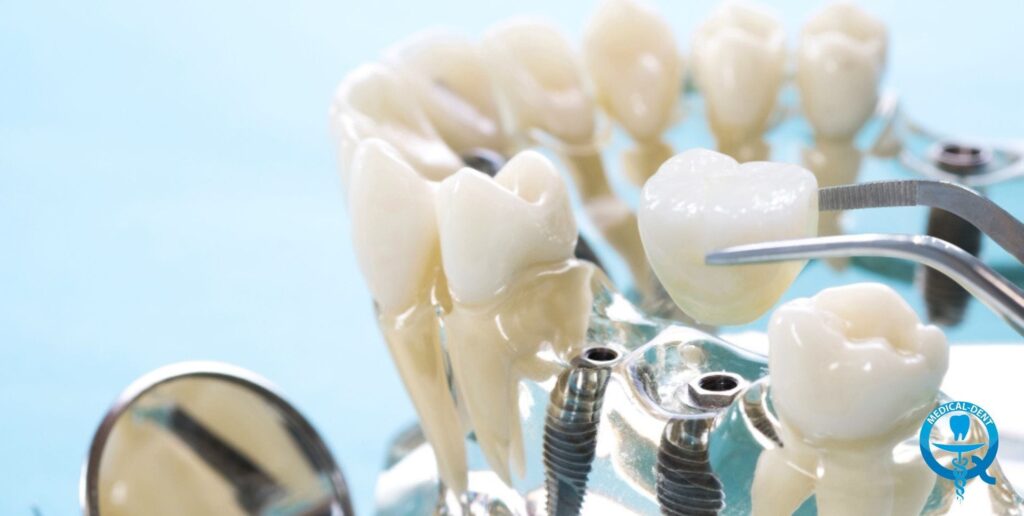Dental implants are one of the most modern and effective solutions for missing teeth. They are not only aesthetically pleasing, but above all a functional restoration that can last for many years. For more information on what a dental implant looks like, how the procedure works and how much it costs, please see the article.
What is a dental implant?
A dental implant is a small, usually titanium (or ceramic) component that acts as an artificial tooth root. It is surgically inserted into the jawbone or jawbone, where it gradually fuses with the bone. Only on it is a prosthetic crown, bridge or prosthesis.
Implants are currently the best solution on the market for missing teeth or toothlessness. We would like to remind you that even a single unfilled tooth gap can be the beginning of serious problems. Which ones? We wrote about this in our article "Missing tooth - when you need to fill the gap left by an extracted tooth".
Returning, a dental implant is most often recommended for its durability - it can last a lifetime. However, this is not the only advantage. Another one is aesthetics and comfort - an implant perfectly imitates the appearance of a natural tooth and does not require special care, such as in the case of dentures. And if you want to learn about other advantages of this solution, we recommend our text "6 reasons why dental implants in the UK are a good choice".
However, not everyone can benefit from it.

Contraindications to the use of dental implants
Although a dental implant is an excellent solution for many patients, there are some contraindications that may prevent its placement.
This is primarily an insufficient amount of bone. In order for the implant to be placed stably, an adequate amount and density of bone is needed at the planned site. If there is significant bone loss, it may be necessary to perform a bone reconstruction procedure beforehand. You can read more about this in the text "Bone reconstruction for implants in the UK".
Another contraindication may be medication taken or systemic diseases, including: diabetes, heart disease, osteoporosis or blood clotting disorders. Also, smoking can be a serious obstacle to implantation. Why? Nicotine affects tissue healing and can increase the risk of surgery failure.
If you are in one of the following groups - before you give up the implant, make an appointment for the implantology consultation. During this session, the dentist will not only answer all your questions and clear up any confusion, but will also suggest other options for filling the gap left by a missing tooth.

And what does the dental implant procedure look like?
The dentist makes an incision in the gums to expose the jawbone. He or she then makes a hole in the bone to precisely match the size of the implant to ensure its stability. The next stage is to place the implant and close the gum.
Then the patient has to wait a few weeks, or even months, until the wound heals and the dental implant fuses with the bone. Finally, a crown, bridge or denture is attached to the implant.
We described the whole process in detail in the article "Placing a tooth implant - what the procedure looks like", and what is its price?

Cost of the implant
This one obviously depends on the dental practice, but also on the material of the implant itself. In our practice it costs from £1000, to this price you have to add a crown, bridge or denture.
If you are now thinking that this is a lot then we have two good information. First - our instalment system! It allows you to divide the entire expense into instalments that are convenient for you. Importantly, the first 12 months are zero interest, so you only pay back the amount you spent on treatment. The second piece of good information - the implant will not require dental treatment in the future.
IMPORTANT! Our instalment system is regulated by the Financial Conduct Authority - FCA number 619628 More on this in the text "Teeth on credit: dental treatment on hire purchase".

